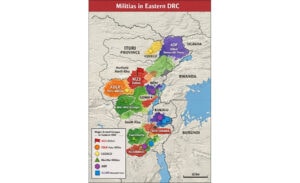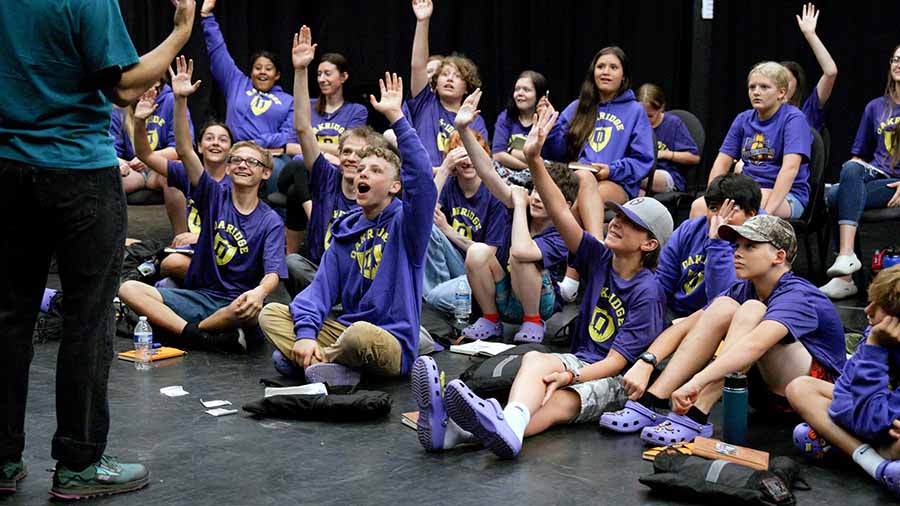I want to create a space that doesn’t exclude those who don’t readily agree with me
By Herbert Rothschild
In The New Yorker of Sept. 29 there was an essay by Zadie Smith about writing essays. Her pieces are always worth reading, and since my columns are the equivalents of essays, I made it a point to read this one.

A sizable section of Smith’s piece was devoted to the audience for which she writes. She conceives it as a general, not a niche, audience, which means it includes readers quite different than she, but with whom she wishes to be in relation. “We aren’t required to be like one another or even to like one another to be in relation. We just need to be willing to enter spaces in which solidarity is one of the possibilities.”
Obviously, I was struck by that passage. It made me question whether my columns are creating a space in which solidarity is one of the possibilities. I like to think that I do write for a general audience.
I know that my organization and my vocabulary are more difficult than what traditionally has been deemed suitable for local newspapers. Writing in them was meant to be accessible to readers with an eighth- to 10th-grade education, and mine is not. But the population Ashland.news serves is more educated than that. So, like Smith, I’m not concerned that I may be excluding readers with insufficient powers or patience or interest. What I want to avoid is excluding readers who often think differently than I about subjects of shared concern.
The surefire way to exclude such readers is to write opinion columns as if they were one side of a debate. We must habituate ourselves to say the things that are most relevant to a subject, even if those things impede easy progress toward a conclusion we want to reach. For instance, to talk about what Israel is doing now to the people of Gaza without acknowledging the Hamas attack on Oct. 7, 2023, is intellectually and morally dishonest. But to use Oct. 7 to justify the genocide without acknowledging that Israel drove the people of Gaza off their lands in 1948 and has kept them penned in the world’s largest concentration camp is even more dishonest.
The issues that public officials must address are often complex, and policy formation can be challenging. Regrettably, too many politicians were on debating teams when they were in school, and some of them later became litigating attorneys. The goal of performances in such settings is victory, not understanding. Even learning to argue both sides is poor preparation for seeking the truth as best we can ascertain it. Usually, subjects are multifaceted. Exploring them by marshalling arguments pro and con generates limited insight, although the news media are addicted to that approach when reporting on contested issues.
Mix ideological rigidity with the habit of arguing one side and the result is a toxic brew. We generally think of “reaching across the aisle” as compromise, so it seems to pit practicality against principle. But when the legislative process is framed as an exploratory conversation, not a debate, then both Republicans and Democrats realize that they are balancing costs and benefits, not right and wrong. If the process goes right, principle and practicality can’t be disentangled.
I regard the recent Oregon legislation that revised the rules for involuntary civil commitment of the mentally ill as a fine illustration of a process that went right. Lots of compromises were built into that legislation, but they arose organically from the complex nature of the reality being addressed. I enjoyed writing about it.
Indeed, I prefer subjects about which “being right” isn’t what’s at stake. Perhaps that’s because my day job, for most of my life, was studying and teaching imaginative literature, which confronts the human condition with varying degrees of profundity. If we can find solidarity anywhere, it’s in the recognition that we are all vulnerable and that we live with that vulnerability in myriad ways, some better, some worse.
The very worst way is to exploit the vulnerability of others to aggrandize ourselves. That’s what creates situations requiring decent people to say, “This isn’t right.” Unfortunately, it happens all too often, and then I have to write columns with the goal of persuading readers to stand with me against injustice and cruelty.
For example, denying food and health care to needy people to reduce taxes on the very wealthy is not a multifaceted issue. According to a Rogue Valley Times article that Ashland.news reprinted on Sept. 5, Cliff Bentz, our U.S. representative, defended his vote to do precisely that by saying, “One-third of Oregon is on Medicaid. What does that tell you about Oregon? … Why aren’t people saying, ‘What’s wrong with Oregon, that we don’t have good-paying jobs here?’ Why aren’t people yelling about that?” Had I been the reporter, I would have said, “Mr. Bentz, you can’t really believe you’ve just said something that justifies the harm you did.”
How does one write a column about torturing people in Guantanamo or eliminating the U.S. Agency for International Development or deliberately starving people in Gaza without alienating those who are OK with such actions?
The primary requirement is to show respect, not contempt, for them, even if it’s hard to see how they can hold such opinions. Smith says, “[Y]ou can never forget that all around you . . . [are] people with their own unique histories, traumas, memories, hopes, fears.”
I remind myself that, for the first 22 years of my life, I held the views on race prevalent in the unreconstructed South in which I was raised. We mustn’t compromise our values, but it is fundamentally, not just tactically, wrong to call such people “deplorables.”
There is a person long prominent in Ashland with whom I’ve disagreed continuously and publicly about Israel’s treatment of the Palestinians. Yet, we speak with respect both to and about each other. We are in relation. For that I’m pleased and proud.
Herbert Rothschild’s columns appear Fridays. Opinions expressed in them represent the author’s views. Email Rothschild at [email protected].



















